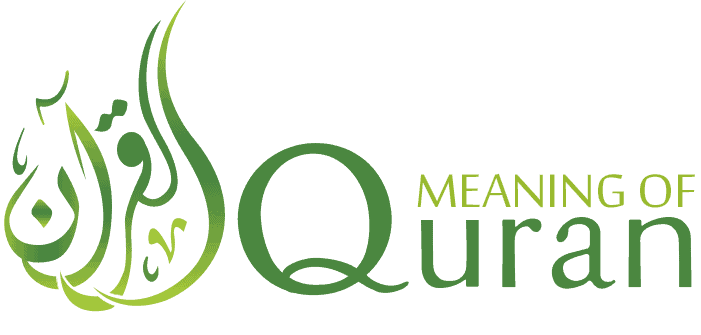Al-A’la | The Most High
With the name of Allah, the All-Merciful, the Very-Merciful.
[87:1] Pronounce the purity of the name of your most exalted Lord,
[87:2] who created (everything), then made (it) well,
[87:3] and who determined a measure (for everything), then guided (it),
[87:4] and who brought forth pasturage,
[87:5] then turned it into a blackening stubble.
[87:6] We will make you recite, then you will not forget.
[87:7] except that which Allah wills. Indeed He knows what is manifest and what is hidden.
[87:8] And We will facilitate for you (to reach) the easiest way.
[87:9] So, extend advice (to people) if advice is useful.
[87:10] The one who fears (Allah) will observe the advice,
[87:11] and it will be avoided by the most wretched one
[87:12] who will enter the Biggest Fire,
[87:13] then he will neither die therein, nor live (a desirable life).
[87:14] Success is surely achieved by him who purifies himself,
[87:15] and pronounces the name of his Lord, then offers prayer.
[87:16] But you prefer the worldly life,
[87:17] while the Hereafter is much better and much more durable.
[87:18] Indeed this is (written) in the earlier divine scripts,
[87:19] the scripts of Ibrahim and Musa.
With the name of Allah, the All-Merciful, the Very-Merciful.
[87:1] Pronounce the purity of the name of your most exalted Lord,
[87:2] who created (everything), then made (it) well,
[87:3] and who determined a measure (for everything), then guided (it),
[87:4] and who brought forth pasturage,
[87:5] then turned it into a blackening stubble.
[87:6] We will make you recite, then you will not forget.
[87:7] except that which Allah wills. Indeed He knows what is manifest and what is hidden.
[87:8] And We will facilitate for you (to reach) the easiest way.
[87:9] So, extend advice (to people) if advice is useful.
[87:10] The one who fears (Allah) will observe the advice,
[87:11] and it will be avoided by the most wretched one
[87:12] who will enter the Biggest Fire,
[87:13] then he will neither die therein, nor live (a desirable life).
[87:14] Success is surely achieved by him who purifies himself,
[87:15] and pronounces the name of his Lord, then offers prayer.
[87:16] But you prefer the worldly life,
[87:17] while the Hereafter is much better and much more durable.
[87:18] Indeed this is (written) in the earlier divine scripts,
[87:19] the scripts of Ibrahim and Musa.
Tafsir
Overview of Surah Al-A’la
- Title and Position: Surah Al-A’la is the 87th chapter of the Quran. The title “Al-A’la” translates to “The Most High,” referring to God’s supremacy and greatness, which is a central theme of the surah.
- Verses and Structure: This surah contains 19 verses. It is known for its emphasis on God’s creation, command, and control over all things, as well as the importance of purification and remembrance of God.
- Themes and Messages: Major themes include the magnificence of God, the simplicity yet profundity of the Quranic message, the concept of success in the hereafter, and the encouragement of gratitude and reflection on God’s creation.
- Significance in Islamic Thought: Surah Al-A’la is significant for its concise but powerful message about God’s attributes, the purpose of revelation, and the guidance it provides for the spiritual and moral life of believers.
Detailed Explanation
- Praise of God: The surah opens with the glorification of God, highlighting His creation, knowledge, and guidance. It speaks to God’s unparalleled greatness and His sovereignty over the universe.
- The Quran’s Message: It emphasizes the Quran’s role in purifying and instructing the soul, offering a clear path for those who seek success in the hereafter.
- Moral and Spiritual Guidance: The surah advises the Prophet Muhammad, and by extension all believers, to focus on prayer, charity, and the afterlife, encouraging a life oriented toward spiritual fulfillment and ethical conduct.
- Reflection on Creation: Encouraging reflection on the natural world, the surah points to God’s creation as a sign of His wisdom and power, urging gratitude and mindfulness of our place in the universe.
- Concept of Success: The surah redefines success, emphasizing that true success is achieving salvation and proximity to God in the hereafter, contrasting with transient worldly achievements.
FAQs
- Why is Surah Al-A’la named “The Most High”?
- The surah is named “Al-A’la” due to its emphasis on God’s supremacy and transcendence, acknowledging His highest status over all creation.
- What does the surah suggest about the Quran’s role in human life?
- The surah illustrates the Quran as a source of spiritual purification and guidance, essential for understanding and living a life in accordance with divine will.
- How does Surah Al-A’la encourage reflection on God’s creation?
- It points to various aspects of the natural world as manifestations of God’s creative power and wisdom, encouraging believers to reflect on these as a means to recognize and appreciate God’s greatness.
- What lesson can be derived from the surah’s perspective on success?
- The surah teaches that true success is not found in material gain or worldly status but in attaining God’s pleasure, moral integrity, and the ultimate reward in the afterlife.
- The surah is named “Al-A’la” due to its emphasis on God’s supremacy and transcendence, acknowledging His highest status over all creation.
- The surah illustrates the Quran as a source of spiritual purification and guidance, essential for understanding and living a life in accordance with divine will.
- It points to various aspects of the natural world as manifestations of God’s creative power and wisdom, encouraging believers to reflect on these as a means to recognize and appreciate God’s greatness.
- The surah teaches that true success is not found in material gain or worldly status but in attaining God’s pleasure, moral integrity, and the ultimate reward in the afterlife.
Read more
